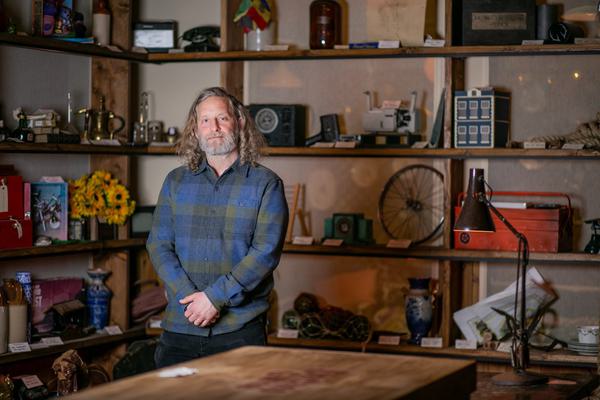What Is Immersive Theatre?
Posted June 19th 2024News Story
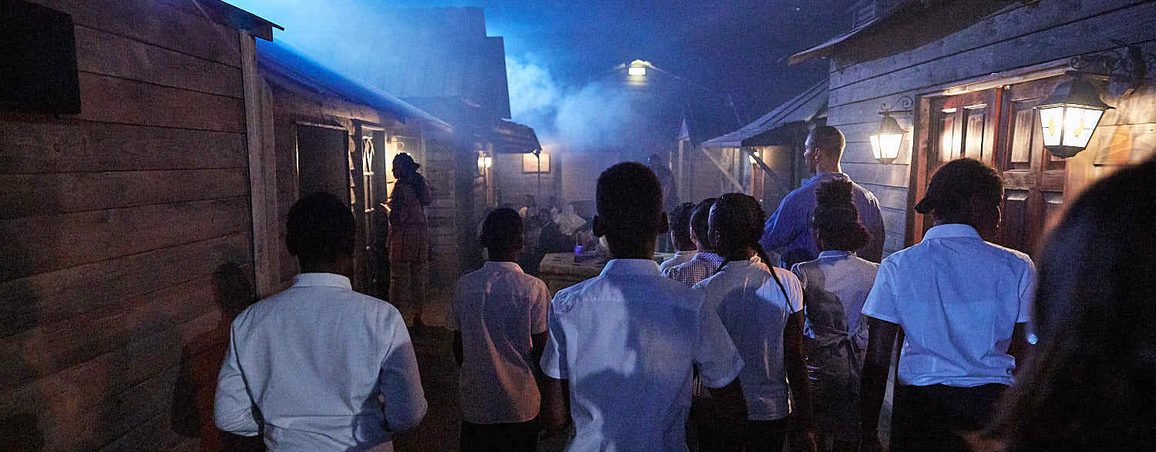
When you step into a traditional theatre, you probably expect to see an auditorium with a stage and seats, perhaps framed by a grand proscenium arch. This is not the case with immersive theatre.
In immersive theatre, you are immersed in the action. The divide between the audience and the performer, the stage and the seating, is removed. Instead, immersive theatre is an interactive experience where you are not only an audience member but an active participant. You are deeply involved in the story.
What is immersive theatre?
Immersive theatre invites the audience to move through a theatrical world as active participants. By stepping through a door to another world, the audience can feel anything from awe to excitement. It is a sensory experience. Every element of stagecraft – from the set design to the lighting, sound, and even smell – works together to tell the story. Instead of watching performers on a stage, the performance might happen around you or with you actively involved. You might explore a performance space, touch and feel the set, and be transported into a new reality.
Blurring the line between performance and reality, this type of theatre encourages strong emotional and physical responses from the audience. Moving through the space and directly engaging with the environment and performers, they experience a heightened, personal engagement with the narrative.
Punchdrunk is known as the pioneer of modern immersive theatre. Founded in 2008, Punchdrunk Enrichment takes this practice into communities and schools, sharing the same fundamental principles and high-quality approach.
Image gallery
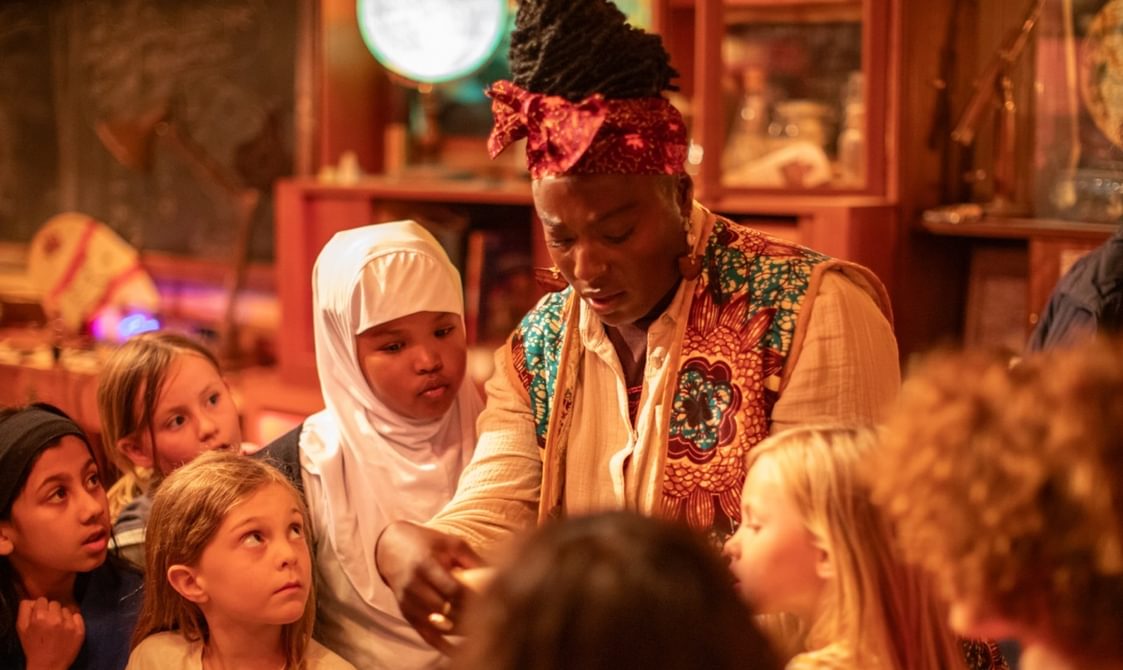
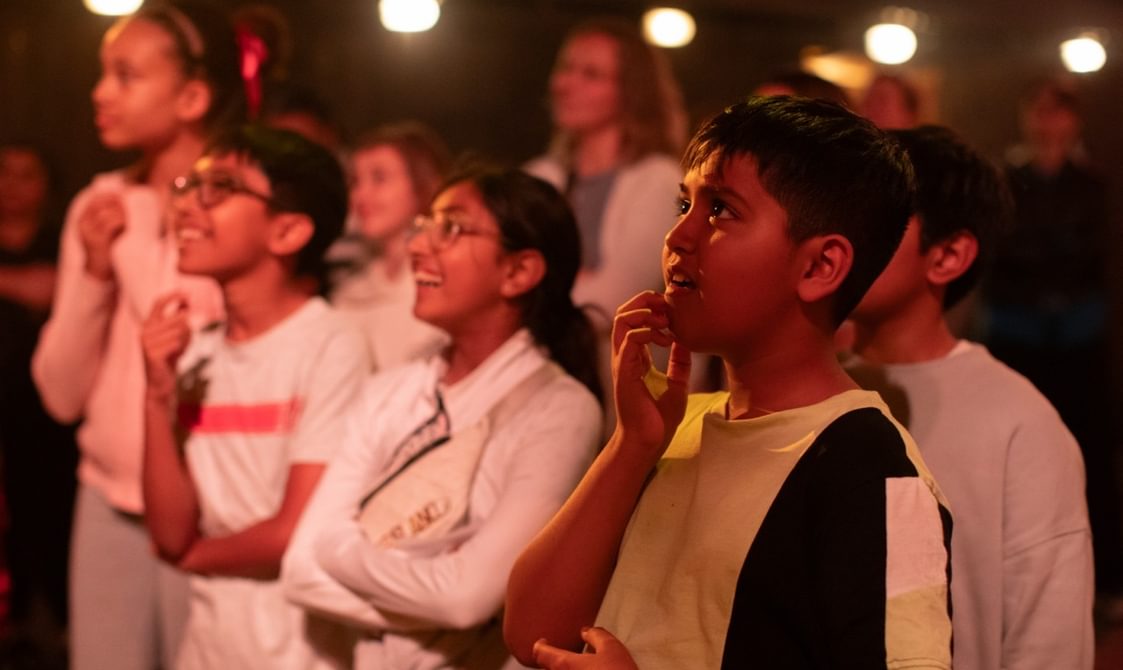
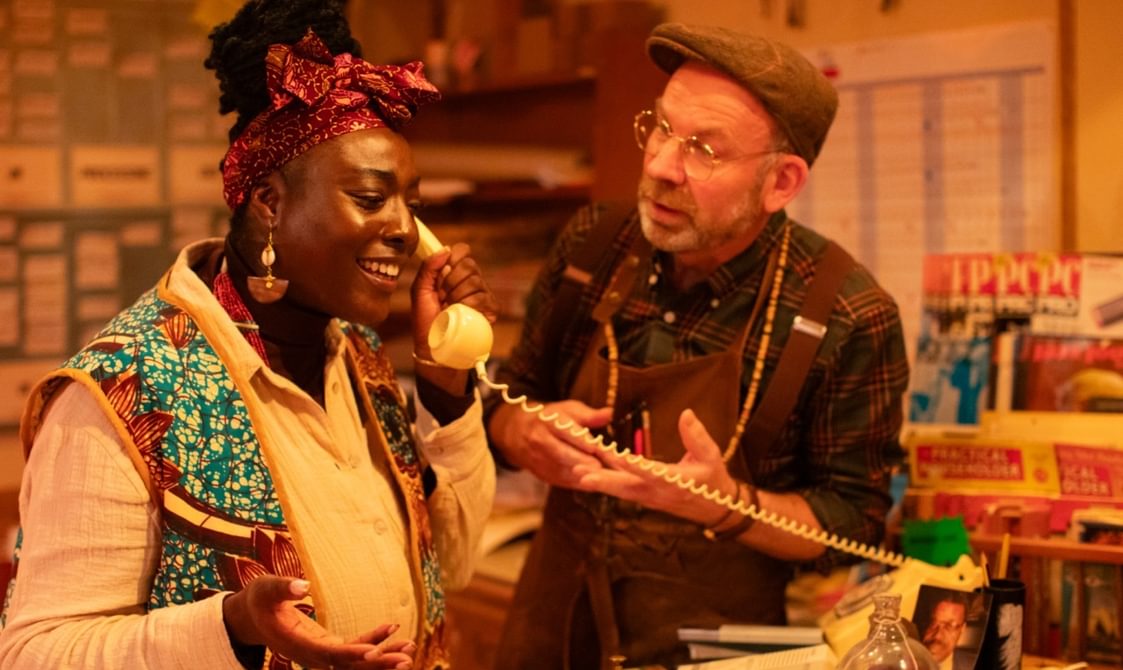
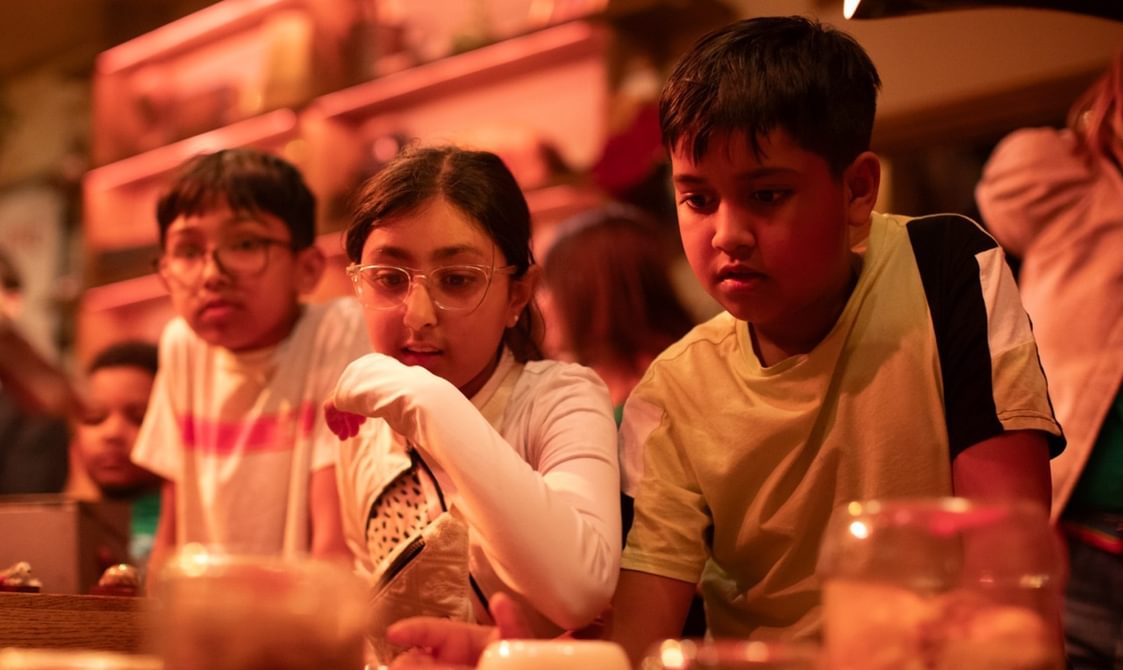
Immersive theatre for children and families
Immersive theatre can be transformative for children. The opportunity for children to enter a fully immersive, fictional world is central to our work. By activating their imaginations and creating memorable experiences, immersive theatre inspires creativity in young audiences. This experience creates the most surprising and dramatic responses in our young audiences.
“It was so cool [...] it was better than watching a movie because you actually get involved in it, you can do stuff to play and you don’t just have to stand there and watch it, it’s actually interactive!” – A child after experiencing Enitan’s Game, 2024
In our family show, Enitan’s Game, audiences begin their journey in a DIY storytelling shop and, by playing a game, unlock a secret world where magic and memory can heal.
Choosing an immersive theatre show instead of a traditional production is an adventure a family can experience together. By playing a game, interacting with a character, or engaging with the space, your agency in the story is rewarded.
Image gallery
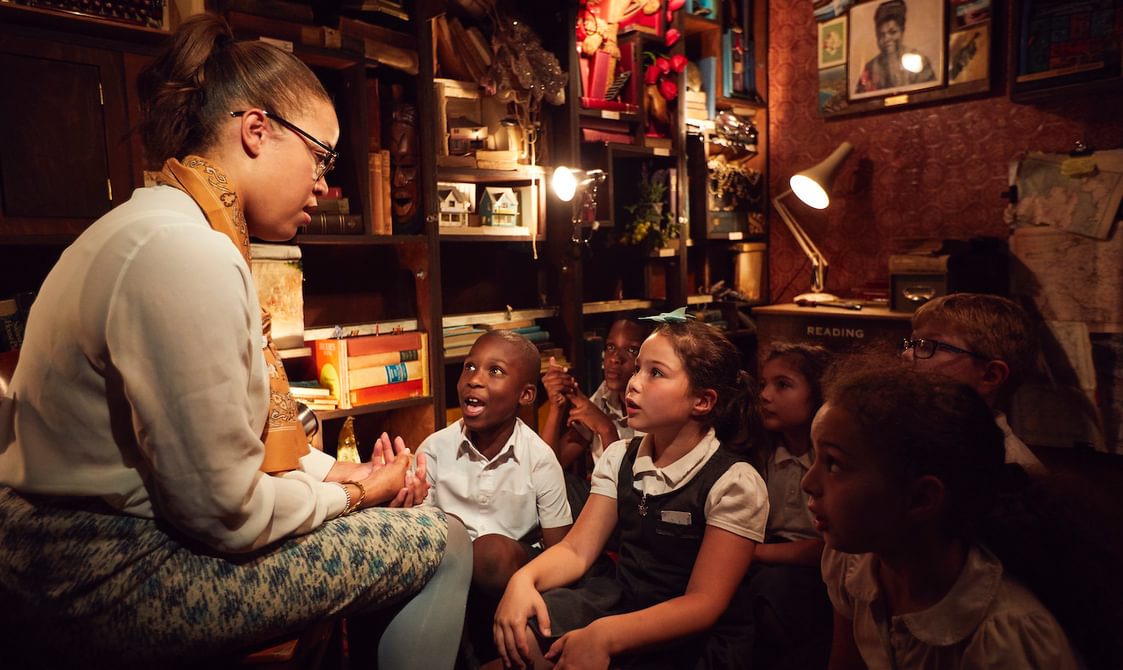

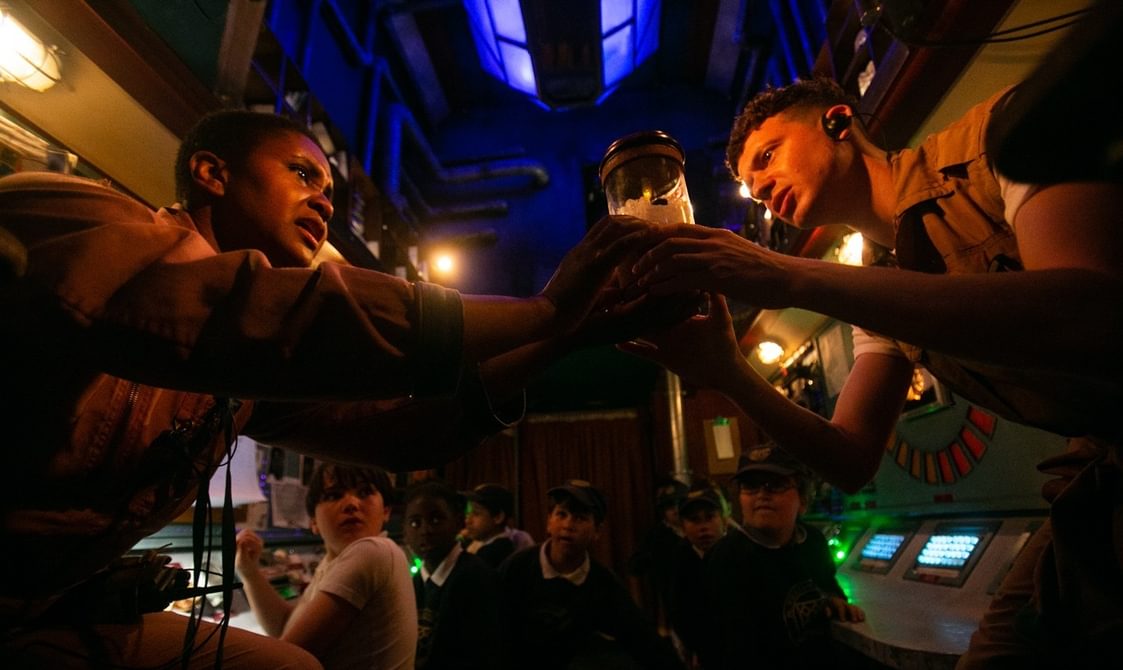
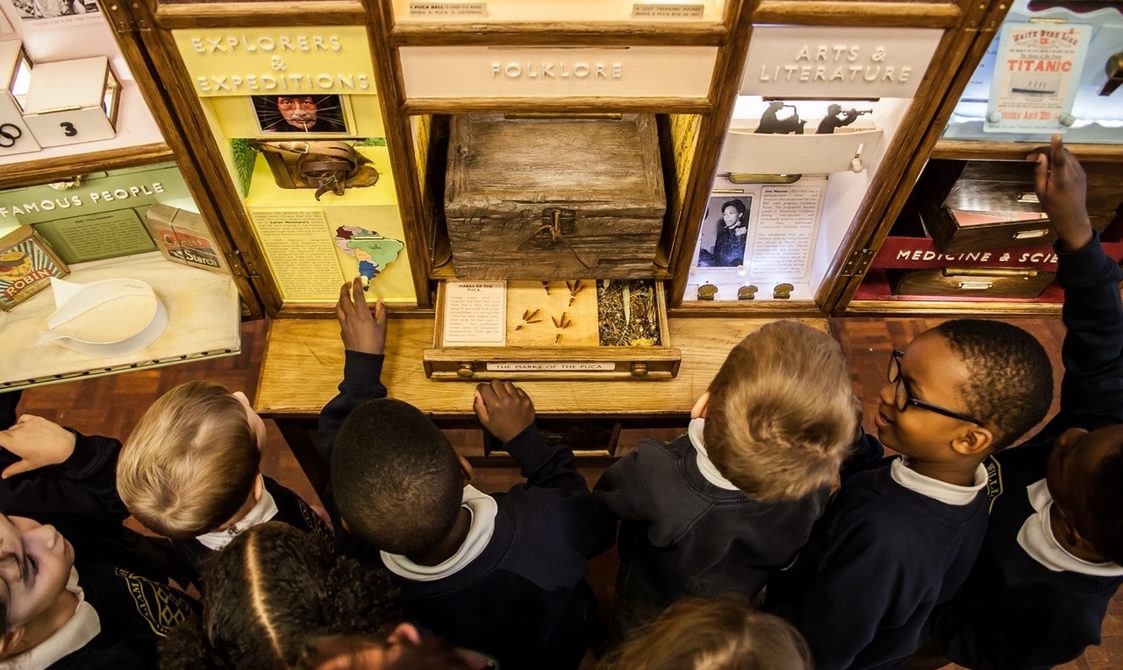
Immersive learning in schools
Immersive learning utilises the techniques of immersive theatre within an educational environment.
Learners are placed within a fictional or fictionalised real world, casting them as characters in a story, with their actions and work integral to the progression of the narrative.
Since 2008, we have brought the literacy project The Lost Lending Library to more than 40,000 children in 75 schools across England, Scotland and in Australia. 85% of teachers testified to the improvement of their pupils’ oracy and literacy skills, across all primary age groups. With a classroom based project like A Small Tale, teachers can even lead their own immersive adventures.
"The children were excited to write stories independently and I have received many of them from home. A boy who was a reluctant writer now asks if we are writing everyday." – A Year 1 Teacher after experiencing The Lost Lending Library, 2022
You can find out more about immersive learning in our blog post here
What’s next?
If you’re ready to experience immersive theatre for yourself, you can get tickets for our latest shows. Check out What's On.
Or, if you’re eager to learn more about immersive theatre and Punchdrunk Enrichment consider reading the Punchdrunk Encylopaedia.

